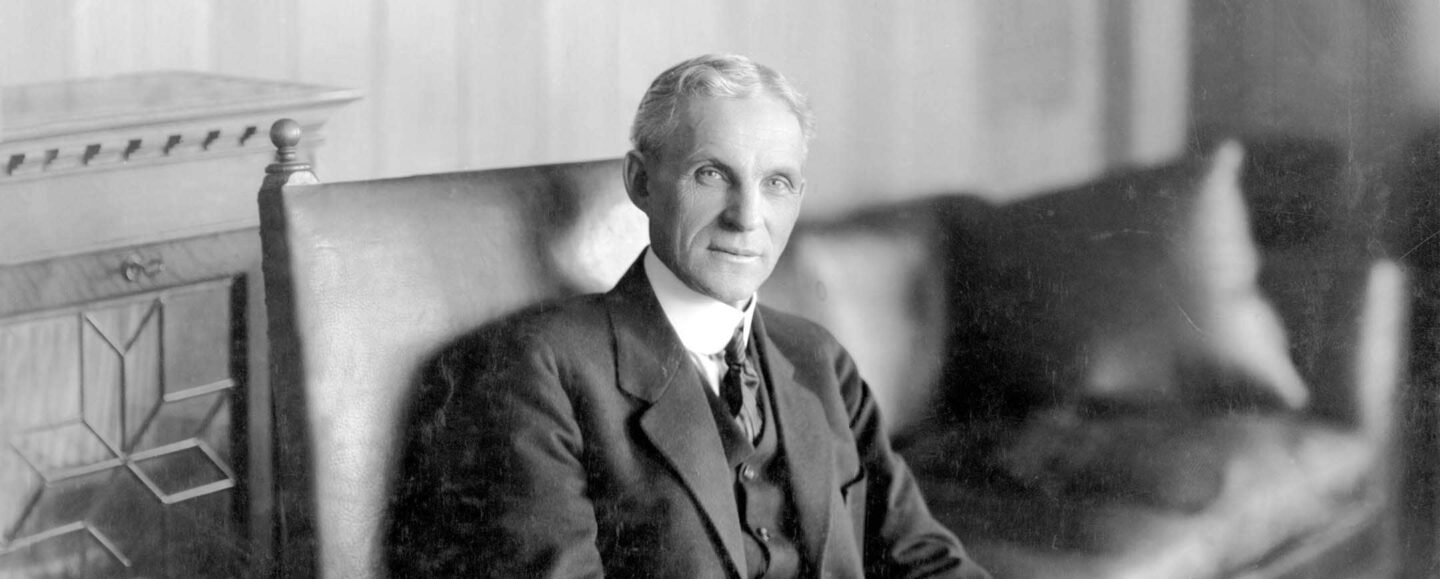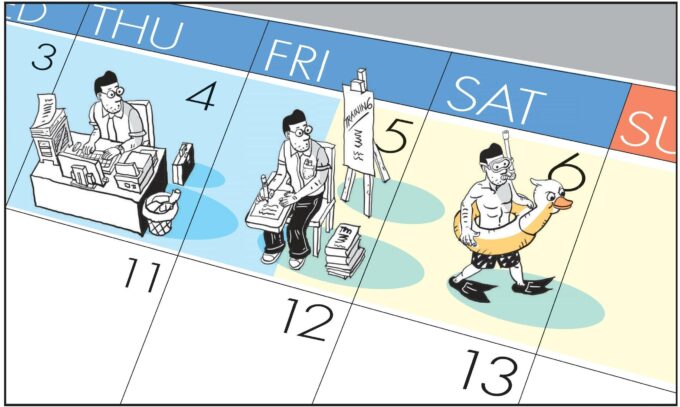While the implications for productivity across both options are positive, there are downsides. ‘Same with less’ could lead to mass unemployment, resulting in significant societal discontent. ‘More with same’ could lead to increased employee stress and discontent.
However, GenAI could also lead us to another Henry Ford moment, one that could have multiple benefits, including:
1.Leveraging the productivity improvements of GenAI, while
2. Maintaining employment at current levels, and
3. Ensuring that employees are happier and more fulfilled, and
4. Providing significant benefits to society.
Reimagining the five-day work week
If we assume that productivity improvements will net out at 20% for knowledge workers, then workers could complete five days of work in four days. Perhaps we could implement a four-day work week?
Let’s take a look at those recent experiments. A large trial in the UK found benefits to worker sleep, stress levels, and mental health. Fifteen percent of employees stated that no amount of money could convince them to go back to a five-day working week. Retention skyrocketed. How was performance impacted? Revenue was found to stay the same. After the six-month trial, 90% of companies in the study planned to maintain the four-day work week structure.
Other experiments with a four-day working week in Belgium, New Zealand, and Iceland found similar positive results. A US study in 2019 found that 24,000 or 26,000 employees favored a reduced work week even if they had to work the same number of hours over fewer days.
Arguments against a four-day week cite a number of concerns, including reduced competitiveness (if we do this and our competitors don’t, we’ll be at a disadvantage), higher costs (it’s going to cost a lot to implement and manage), excessive idealism (come on… we have to run a business here), and impracticality of implementation (we can’t just close down for a day a week).
Because of these arguments, few four-day work week schemes have taken off at scale.
The four-plus work week
Generative AI has given us the gift of productivity, but it would be wasted if it were to lead to productivity improvements alone.
Imagine if the fifth day were split into two equal parts. The first part would be given back to the employee. Data from the four-day week experiments show that participants enjoy more fulfilling lives when they have more time for personal interests like spending time with family, pursuing hobbies, and so on.







